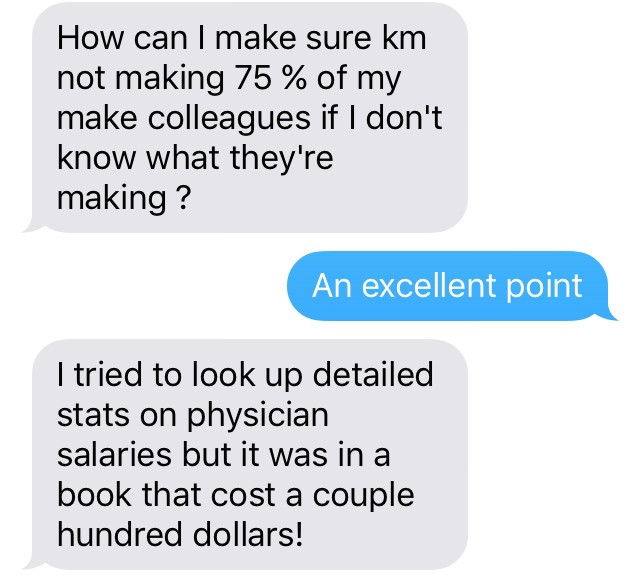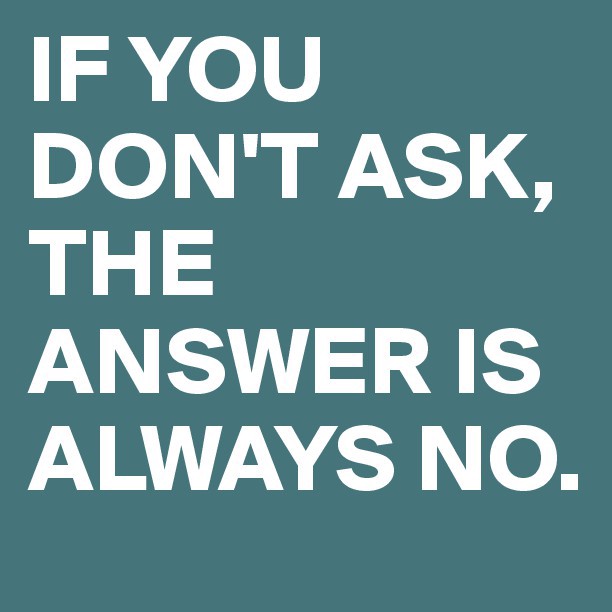Gender Affects Wages. So What Can We Do?
Don’t Give Up!

The Washington Post offers an excellent summary of current issues facing working women, including some data on the wage gap (“If women earned the same as comparable men, it would reduce the poverty rate of employed women by half”) and a valuable reminder that paid family leave was once a thing and could be again, if we caught up to our own reality.
When it comes to women and work, the largest myth of all is that working is somehow optional. Like men, women work for personal fulfillment and a passion for their job. Also like men, women work to support themselves and their families, and always have. The reality in the United States today is that earning money is an absolute necessity for the vast majority of women. And the sad truth is that we aren’t doing anything to support them or their families — not because we can’t, but because we won’t. …
Today, 70 percent of mothers work. More than 40 percent of mothers are the sole or primary breadwinners for their families, earning at least half of their family’s income. An additional 22 percent are co-breadwinners, earning at least a quarter or more of their family’s income.
The influx of women, particularly mothers, into the workforce over the past few decades has been one of the largest transformations in American life. As a country we have responded to this massive change by, well, pretty much doing nothing.
Last night, I got a text from one of my best and oldest friends on the subject of the wage gap.

She’s right to worry. According to MedScape, she is likely to enjoy a 22% wage gap between her and her male colleagues. Though I guess she could seek solace in the fact that for most doctors the gap is even bigger.
There’s still a large pay gap between full-time male and female physicians, regardless of specialty. Overall, male physicians earn 30% more than their female counterparts. In pediatrics, however, that gap is 22%, less than in many other specialties.
Over half of pediatricians are women and yet they still manage to get paid less than the men. CompHealth broke down the 2014 numbers this way: “Male pediatricians earn significantly more (an average salary of $198,000) than female pediatricians (an average salary of $165,000).”
Forbes reports that this pay disparity holds true even among the most celebrated and accomplished doctors.
By observing elite members of a profession who chose academic careers as opposed to jobs more lucrative private sphere and taking into account as many measureable factors as possible, researchers expected to see a minimal difference in men and women’s pay. Instead, they found that a woman will earn over $360,000 less in her 30-year career than a man working the same hours, with the same qualifications. “Here in Michigan, that buys a house,” said lead study author Reshma Jagsi, MD, DPhil. “Anywhere, it sends a kid to college.”
Bonus fun fact: women were not merely held back by having kids, either.
Both mothers and women without children experienced comparably lower pay than men. While issues such as specialization, awards and promotions do matter, the study was able to take these into account before concluding that gender affect wages — something all women should be aware of when negotiating their pay check.
I still get angry sometimes thinking about the scene in “The West Wing” where Ainsley Hayes, the token “nice” Republican, argues with Sam Seaborn about the wage gap. “You think pay disparity is because some sexist in Human Resources hires two people for two equal positions and pays the man more?” Hahahaha! What a foolish notion. No, she says, “women make less money over the course of their lifetimes because they choose to.”
Oh Ainsley. I never missed you after you disappeared into Mandyville, aka, the black hole where Sorkin’s secondary female characters go once he loses interest in them.
Anyway, does my friend have any recourse, or does she have to shrug and accept that she’ll never reach wage parity with her male colleagues, no matter how good she is at her job? Well, there are a few things she — and all of us, really — can do:
- Talk frankly, though still tactfully, about wages with male colleagues, mentors, and anyone who wants to help us succeed. Breaking down taboos around money is one benefit; getting more and better information is another. As one or two people have said, knowledge is power.
- Look up average/ballpark salaries in our professions so that we can best negotiate for what we’re worth. The Atlantic describes a venture by the site Doximity that gives doctors a way to do that. (“[It’s] a new tool that lets doctors see exactly what salaries other doctors are earning.”) Similar sites like Glassdoor can help too.
- Ask for more when we’re at the negotiating table. I know that I sometimes get stymied by gratitude (“you want to pay me? money?”) or low self-esteem (“you want to pay me? money?”) and fumble through these discussions. But practice helps, really, as does success: once we see that asking for more works, we’re more likely to try it again. As PayScale puts it in their most recent salary negotiation guide, which includes plenty of helpful info and data to mull over, “75% of people who ask for a raise get a raise.” So, you know. Ask!

- Consider changing professions.
According to Fortune:
Of the various industries surveyed by the Census Bureau, legislators report the narrowest pay gap, with women making 91% of the salary earned by their male counterparts. Other industries with pay gaps narrower than the national average include architecture and engineering.
Bonus to becoming a legislator: you can help pass stronger equal pay legislation! Go forth and be the change.
Support The Billfold
The Billfold continues to exist thanks to support from our readers. Help us continue to do our work by making a monthly pledge on Patreon or a one-time-only contribution through PayPal.
Comments